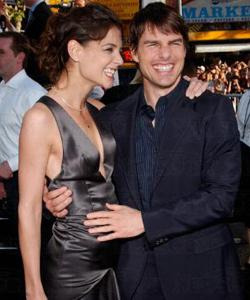 Do we control our future? Or is everything that happens to us decided by fate? If there is a creator, do we have a dynamic or static relationship with him–or her? Such deep, philosophical questions don’t seem like the stuff of a Will Ferrell movie, but his latest flick, “Stranger Than Fiction,” will surprise many of his fans with a more thoughtful, restrained–yet still absurd –take on one man’s attempt to control his destiny.
Do we control our future? Or is everything that happens to us decided by fate? If there is a creator, do we have a dynamic or static relationship with him–or her? Such deep, philosophical questions don’t seem like the stuff of a Will Ferrell movie, but his latest flick, “Stranger Than Fiction,” will surprise many of his fans with a more thoughtful, restrained–yet still absurd –take on one man’s attempt to control his destiny.
We’ve all heard little voices in our heads from time to time, but hopefully none quite like the one IRS agent Harold Crick hears. Harold’s life is perhaps not much more exciting than yours or mine: He has worked the same job for years, he takes the same route to work, eats the same food for breakfast. But his predictable life takes an unpredictable turn when he begins to hear a voice in his head, which narrates his every move and predicts Harold’s imminent death.
We soon learn that the voice Harold hears is the voice of a successful, eccentric, and reclusive author Kay Eiffel (actress Emma Thompson) and that Harold is a character in her latest novel. The only problem is that while Eiffel always kills her characters at the end of her novels, she is having trouble figuring out how to kill Harold. As Harold tries to alter the course of his life to prevent his death, he encounter a wacky literature professor (Dustin Hoffman), a feisty and sexy baker (Maggie Gyllenhaal), and, finally, the author of his life story, Eiffel herself.
It takes a leap of faith to go with the premise of this movie and embrace this kind of alternate reality, but if you do, “Stranger Than Fiction” makes it worth your time. The characters and the plot are smart-funny, not goofy-funny, like other Ferrell movies , and the story is not as bizarre as past movies with a similar premise–films like “Adaptation” or “Being John Malkovich,” for example. Instead, the movie cleverly explores the aspects of our lives that are affected by whether or not we believe in free will or predestination. Even better, we see a touching relationship develop between the author and the character she created, which certainly has serious spiritual implications about the true worth of any one person’s life.
The only disappointment is that for all of “Fiction”‘s sharp storytelling and clever references to historical figures–Harold Crick is most likely linked to the teachings of Francis Crick, for example–it doesn’t have the courage to give us the ending that Harold (not to mention the audience) deserves. The movie would be far more interesting and worthy of water cooler talk if Harold’s realization about his life had played out as the author always intended.
Still, “Stranger Than Fiction” is a refreshing story in the midst of a lot of recent releases that look and feel too familiar. Even if it may not be quite as profound as it wants to be, there’s enough truth in “Fiction” to make me want to recommend it.


